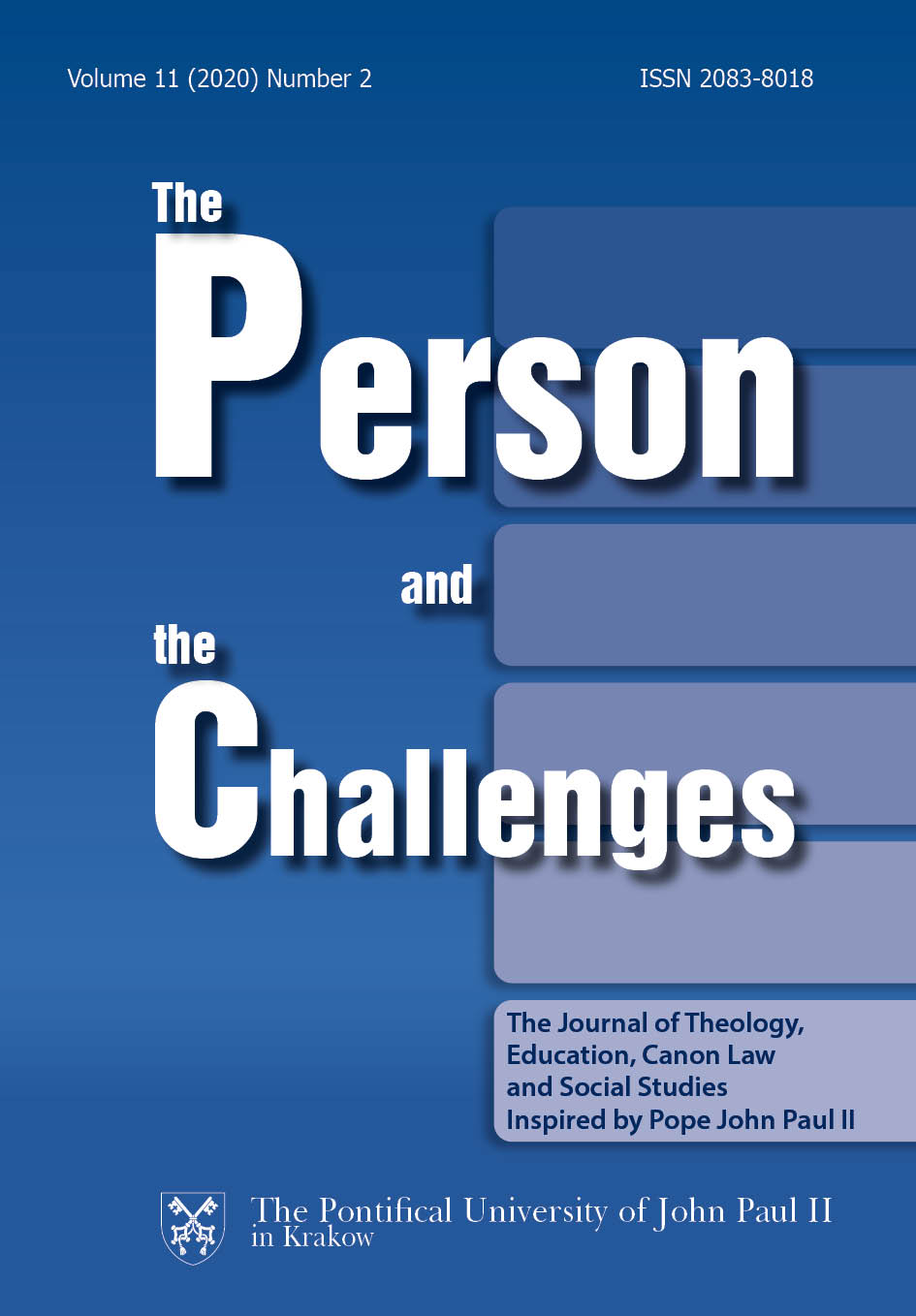Professional Advancement of RE Teachers in the Context of the Challenges of the Information Society
DOI:
https://doi.org/10.15633/pch.3750Słowa kluczowe:
Information society, RE teacher, advancement of teachersAbstrakt
In the first years of political transformation in Poland starting in 1989, one of the crucial issues was the reform of education, including changes in the procedure of professional advancement for teachers. At that time, it was also important for the Catholic Church to restore Religious Education in schools, which returned to the state education system in the 1990–1991 school year. Since then, RE teachers have had the same rights and obligations as teachers of compulsory subjects and undergone the same professional advancement procedure. Twenty years have passed since the new procedure of career progression for teachers was introduced in Poland. Therefore the author of the article attempts to answer the following questions: To what extent does the procedure meet the challenges of the information society and in what direction should it evolve due to the rapid development of information and communication technology in the world?
Bibliografia
Act of 25 July 1998 amending the School Education Act, Journal of Laws 1998, No 117, item 759.
Act of 8 January 1999 – The School System Reform Act, Journal of Laws 1999, No 12, item 96.
Banach Cz., Nauczyciel naszych oczekiwań i potrzeb od A do Ż, Lublin 2009.
Bielinowicz A., Rozwój kompetencji informatycznych nauczycieli religii w archidiecezji warmińskiej, Olsztyn 2020.
Bilicka B., Gurzyński M., iPad na szkolnych lekcjach religii, Toruń 2019.
Goban-Klas T., Społeczeństwo informacyjne i jego teoretycy, in: W drodze do społeczeństwa informacyjnego, J. Lubacz (ed.), Warszawa 1999.
Goban-Klas T., Sienkiewicz P., Społeczeństwo informacyjne: szanse, zagrożenia, wyzwania, Kraków 1999.
Golka M., Czym jest społeczeństwo informacyjne?, “Ruch Prawniczy, Ekonomiczny i Socjologiczny” (2005) No 4, pp. 253–265.
Górski A., Procesy powstawania, przetwarzania i wykorzystywania wiedzy w społeczeństwie informacyjnym, “Studia Informatica Pomerania” (2017) No 4, pp. 19–34.
Janiga W., System awansu zawodowego nauczycieli, in: Katecheza dzisiaj. Problemy prawne i teologiczne, W. Janiga, A. Mezglewski (eds.), Krosno – Sandomierz 2000, pp. 141–149.
Konferencja Episkopatu Polski, Dyrektorium katechetyczne Kościoła katolickiego w Polsce, Kraków 2001.
Kordek A. Zastosowanie iPada jako podręcznika do nauki religii, in: Katecheta i katechizowany w Sieci, B. Bilicka (ed.), Toruń 2015, pp. 113–144.
Kordek A., Platforma edukacyjna Apple w szkolnym nauczaniu religii, in: Katecheta i katechizowany w Sieci, B. Bilicka (ed.), Toruń 2015, pp. 163–200.
Kowalikowa J., Zawód nauczyciela w świetle reformy, in Kompetencje nauczycieli w reformowanej szkole, M. T. Michalewska, P. Kowalik (eds.), Katowice 2003.
Mezglewski A., Usunięcie i przywrócenie nauczania religii do szkół, in: Katecheza dzisiaj. Problemy prawne i teologiczne, W. Janiga, A. Mezglewski (eds.), Krosno – Sandomierz 2000, pp. 97–108.
Plebańska M., Polska szkoła w https://www.cyfrowobezpieczni.pl/uploads/filemanager/raporty/RAPORT_CYFRYZCJA_SZKOL_2017.pdf (20.06.2020).dobie cyfryzacji. Diagnoza 2017,
Siemińska-Łosko A., Negatywne implikacje wprowadzenia technologii informacyjnej do edukacji, in Wybrane aspekty technologii informacyjnej w edukacji, D. Siemieniecka, A. Siemińska-Łosko (eds.), Toruń 2007, pp. 86–106.
Staniś-Rzepka J., Nowe technologie informacyjne w posłudze katechetycznej, PhD disseration, Poznań 2019.
Szajda A., Kompetencje medialne nauczycieli religii archidiecezji lubelskiej w świetle dokumentów Kościoła i badań własnych. Studium z edukacji medialnej, PhD disseration, Lublin 2018.
The Regulation of the Minister of National Education of 14 April 1992 on the Conditions and Manner of Organizing Religious Education in Public Schools, Journal of Laws 1992, No. 36 item 155.
The Regulation of the Minister of National Education of 3 August 2000 on the Acquisition of Teachers’ Professional Titles, Journal of Laws 2000, No. 70, item 825.
The Regulation of the Minister of National Education and Sport of 23 September 2003 on the Standards of Teacher Education, Journal of Laws 2003, No. 170, item 1655.
The Regulation of the Minister of National Education of 26 July 2018 on the Professional Promotion Degrees for Teachers, Journal of Laws 2018, item 1574.
The Teachers’ Charter Act of 18 February 2000, Journal of Laws 2000, No 19, item 239.
Vuorikari R., Punie Y., Carretero S., L. van den Brande, DigComp 2.0: The Digital Competence Framework for Citizens, 2016.
Zalewska – Bujak M., Udział nauczycieli w przemianach edukacyjnych przełomu XX i XXI stulecia w Polsce, Katowice 2010.
Pobrania
Opublikowane
Numer
Dział
Licencja
Autorzy publikujący w czasopiśmie udzielają jego wydawcy zgody o następującej treści:
- Autor zachowuje autorskie prawa majątkowe do utworu, a jednocześnie udziela wydawcy czasopisma zgody na jego pierwszą publikację w wersji drukowanej i wersji online na licencji Creative Commons Uznanie autorstwa 4.0 Międzynarodowe oraz zgody na wykonywanie opracowań, w tym przekładów.
- Autor ma możliwość udzielania zgody niewyłącznej na opublikowanie utworu w wersji, która ukazała się w czasopiśmie (np. zamieszczenia go w repozytorium instytucjonalnym lub opublikowania w książce), wraz z informacją o jego pierwszej publikacji w czasopiśmie.
- Autor może umieścić swój utwór online (np. w repozytorium instytucjonalnym lub na swojej stronie internetowej) jeszcze przed zgłoszeniem utworu do czasopisma.

